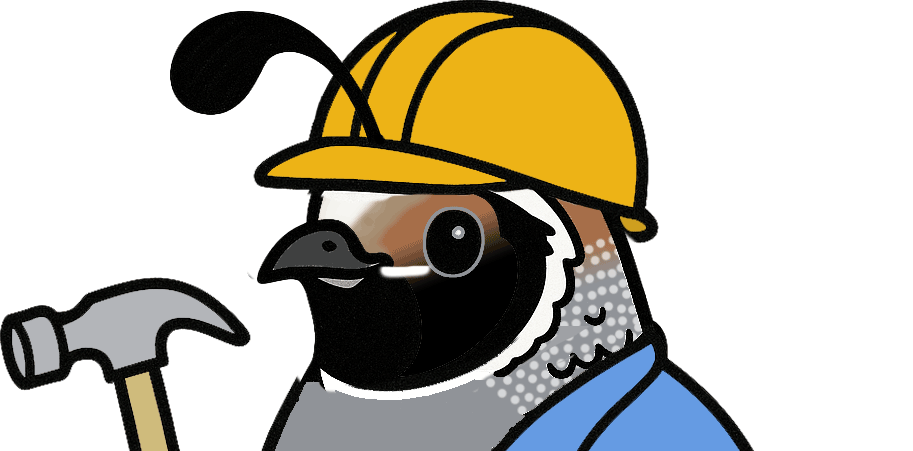Creating Ripples of Change
- Jun 14, 2023
- 4 min read
Updated: Oct 15, 2023
Happy Endings & New Beginnings
June is traditionally our busiest month of the year—and this year is no exception! We are getting more than 20 birds a day who are desperately in need of care. Many of the birds we receive are among the species most susceptible to HPAI and must go through quarantine (even if they aren't displaying symptoms), and sadly, more and more birds are arriving with active HPAI symptoms.
Thankfully we continue to add new volunteers to our ranks—a true blessing during this busy time of year! We are also moving forward with plans for a safe and dedicated quarantine area to help us manage the HPAI threat—a project we hope you will support!
Ripples of Change

Have you ever tossed a pebble into a lake and watched as the ripples spread out across the water’s surface?
Many things in life are similar to that little pebble, creating far-reaching ripples whose impact we sometimes don’t even realize.
We recently mailed our Spring - Summer Update with highlights of some of the ripples we have been experiencing—some amazingly unexpected and others more than a little challenging
One Pebble Stands Out Above The Rest
One pebble in particular has defined our year so far, and that is the ever-present threat of HPAI. This deadly virus is currently impacting almost 18% of the birds we receive. And yet the ripples generated from this undeniably challenging situation have also brought many positive changes: a closer collaboration between rehabilitation organizations worldwide, tremendous support from our local communities, and an influx of much-needed volunteer support.

Click here to read the entire update and learn more about the ripples impacting BRC!
The Upside of HPAI
Our First Groups of Quarantine Babies Get Released

Navigating Baby Bird Season within the context of an avian flu epidemic has not been without its challenges. Certain species most susceptible to the disease must go through quarantine whether they are displaying symptoms or not. These include corvids (crows, ravens, and jays), raptors (hawks, falcons, owls, etc.), and waterbirds (geese, herons, egrets, etc.). Our first quarantine babies to qualify for release is a group of six California Scrub Jays from two different locations. Having passed through quarantine, they progressed through our regular hospital rehab and are now ready to take on life in the wild
This disparate group of orphans wasn't able to reunite with their biological families, but since completing HPAI quarantine, it has been smooth sailing. Now it's time for them to go through a process of 'soft release'. And as you read this, their happy ending is well underway.
Soft release is when unrelated babies are raised together in a group so they bond together as a family unit. The last step in their rehabilitation process takes place in a caged enclosure, within a suitable habitat in a safe yard, where they can be provided food for a short period before finally opening the door and allowing them to explore their new home. The door remains open with regular food provided as they learn to become fully self-sustaining. In this way, they are supported until such time as they have mastered foraging and living independently. Once established in their new habitat, they will begin creating ripples of their own as they join the ranks of other wild birds and make vital contributions to the overall health of our local ecosystems. What could be better!
An Opportunity To Create Some Ripples Of Your Own!
Given the fires and extreme weather we've experienced in recent years, we've lost many of our soft-release stations. If you haven't been able to volunteer in the hospital or education program and have a yard free from roaming cats and chemical use, this might be a perfect way for you to support this important work.
Start by simply birdwatching in your backyard! Record which avian species you see and note the frequency of their presence (frequent, occasionally, rarely). We will help to balance the abundance and variety of birds as we plan future releases. We want to make sure we don't overload an area or introduce new birds to a place they've never been before. Once we find a nice spot for the enclosure with shade and suitable protection, we'll coach you through the process of being a soft-release host. Imagine the thrill of knowing you have helped these birds get their second chances at life in the wild!
HPAI Quarantine Facility In The Works You can have a real and lasting impact on those most in need
We are almost one year into the HPAI pandemic with no signs of it leaving. Much like COVID, it appears HPAI is becoming part of our "new normal".

HPAI is currently impacting over 18% of the birds we receive. In addition, birds who are among the species most susceptible must go through quarantine whether they are displaying symptoms or not in order to protect other patients and our resident Ambassadors.
Three new, converted shipping containers will soon serve as both an intake area and quarantine facility. The containers, necessary equipment, medical supplies and quarantine materials will cost roughly $300,000. Fortunately, everything, including the containers themselves, will be relocated to our new location once our new facility is built.




Comments